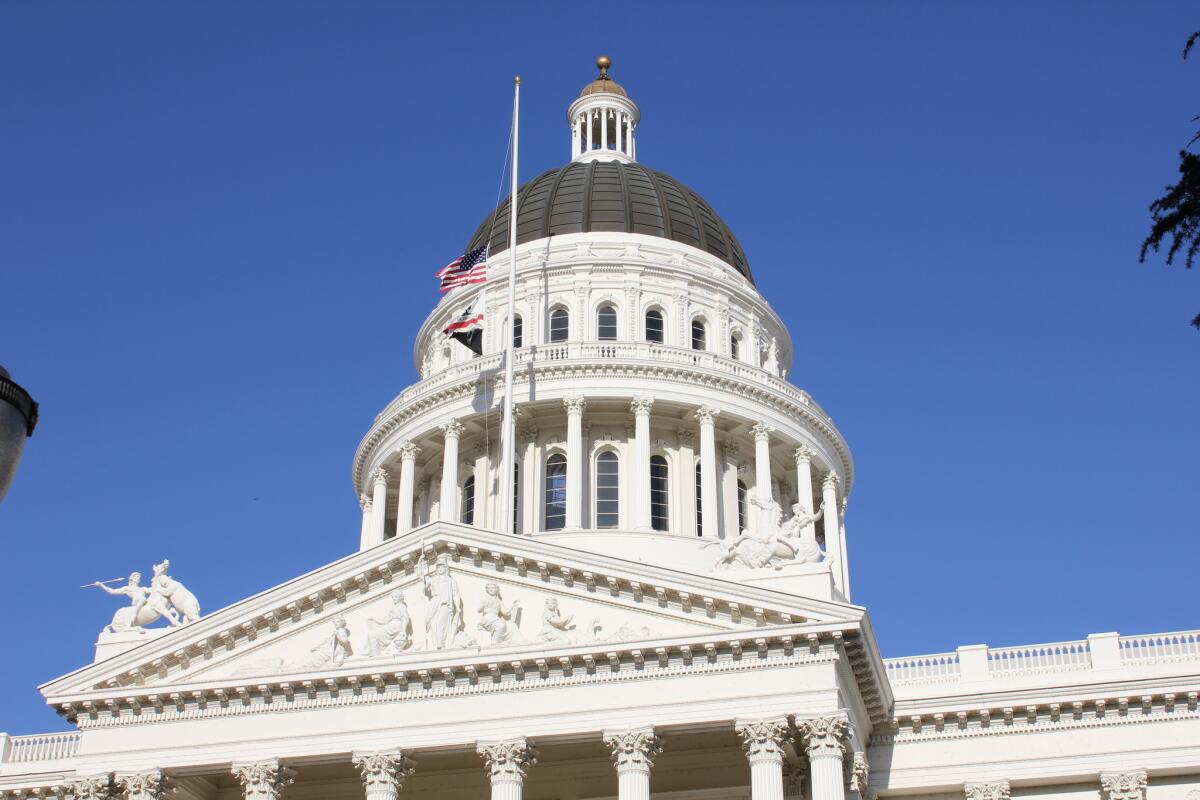California lawmakers, it’s time to govern

- Share via
The Legislature will begin its new two-year session in Sacramento on Monday. Newly elected Assembly members and senators from Southern California will experiment with their flights: LAX, Long Beach, John Wayne or Burbank? The 7 a.m. flight or the 8:30, to be in the Capitol for the noon ceremonies? They will take their oaths, and crow or complain about the size of their new offices. They will exude cautious optimism about the still-ragged but improving condition of the state budget.
Members will take office on a cushion of tax increases, approved by voters last month as part of Proposition 30. They will be less Republican and more Democratic than the previous term’s Assembly and Senate — enough more, in fact, for Democrats to command the two-thirds supermajority that will allow them to adopt veto-proof bills, raise taxes without Republican consent and place constitutional amendments on the ballot, assuming of course that votes fall along partisan lines.
Reflecting a period of battering cuts, they will receive less pay than did their predecessors — $90,526 a year for most lawmakers, down nearly $5,000 from last term and down about $26,000 from 2009. If their constituents are satisfied with them, they will be able to keep their seats for up to 12 years without scrambling for new offices, thanks to the voter-approved term-limits reform.
They may introduce their first bills. And then at the end of the day, they will fly home, for the holidays, for constituent meetings, for family and for fundraising. When they return to Sacramento at the beginning of January, they will be in session in earnest, with legislation to press and Gov. Jerry Brown’s budget to consider.
As they set their agendas, they should remember that even though voters amended term limits, approved tax increases, elected more Democrats and soundly defeated a government reform measure to change how lawmakers adopt budgets and conduct their business, they remain on a short leash. They must demonstrate to Californians that they are worthy of the trust recently placed in them. They should recognize the wisdom even in some parts of Proposition 31, which was defeated: less time cranking out bills, more time overseeing the proper function of the government bureaucracy; more public notice and review of proposed legislation before bills come to a vote.
As funding becomes available, they must also decide what to restore and what to reform. Are there not badly needed changes to our tax structure, our pension system, our budget management that could prevent the state from squandering its temporary tax buffer? There are no rote answers, but lawmakers should deliver a straightforward plan for putting California back on track.
More to Read
A cure for the common opinion
Get thought-provoking perspectives with our weekly newsletter.
You may occasionally receive promotional content from the Los Angeles Times.










